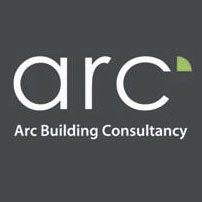Everything You Need to Know About How to Manage a Construction Project
In the world of construction, success goes beyond bricks and mortar. It’s a blend of planning, execution, and an unwavering commitment to quality and safety.
Here, we detail the different elements that lead to success within construction projects, offering the relevant insights and strategies that ensure these meet the required goals within the established budget and schedule.
The importance of project planning
In construction project management, there are a range of elements that should be considered prior to the beginning of a project.
- Brief
Creating an effective brief at the start of the project is imperative. This involves setting clear project goals, specifying the scope, and outlining deliverables.
- Budgeting
Equally critical is budgeting efficiently to take into account materials, labour, equipment, permits, and contingencies – this financial roadmap ensures the project remains financially sound as it progresses.
- Programming
Programming plays a pivotal role in project success, including the development of a well-structured project programme with milestones and precise deadlines for each phase of construction. Timely programming helps keep the project on track and ensures it meets its targeted completion date.
Teams, procurement and contracting
Effective team building is a huge part of construction project management. Assembling a group of skilled people that includes all relevant roles – such as building surveyors, architects, engineers, contractors, and subcontractors – is the first step.
Assigning responsibilities is a key component of this process, where each team member’s roles and duties are distinctly outlined. This ensures the project runs seamlessly, with every member working towards a common goal in the right ways.
Taking care of the relevant procurement needs, such as the materials and equipment required, is another vital element. As well as this, finalising contracts with suppliers and subcontractors, ensuring all project and cost requirements are met, can help avoid issues along the way.
Identifying risks
In construction project management, risk management is crucial. Identifying potential risks is the first step, as foresight plays a critical role in developing mitigation plans.
These proactive strategies help safeguard against setbacks along the way. Also, insurance coverage serves as a protective shield, offering reassurance against the unforeseen, from unexpected accidents to unpredictable challenges.
By identifying risks and securing the right insurance, project managers fortify their projects, ensuring they can weather the unexpected storms of the construction world.
Regulatory compliance
Regulatory compliance revolves around ensuring the project adheres to relevant laws and regulations. This typically involves permitting as well as adherence to building regulations and standards.
Securing the required permits and approvals before construction commences is essential, ensuring alignment with zoning, safety, and environmental regulations.
Secondly, making sure compliance with local building codes and industry standards is paramount, guaranteeing safety, quality, and legal adherence throughout the construction process. These elements serve as the foundation for a successful, safe, and legally sound construction project.
Project design
In the design phase of construction project management, the review and support of architectural and engineering plans are important elements. These crafted blueprints lay the foundation for the entire project, ensuring it aligns with safety and quality standards.
Simultaneously, the practice of value engineering plays a crucial role, seeking innovative and cost-effective design alternatives that maintain the project’s integrity and excellence. This harmonious blend of design scrutiny and cost-conscious resourcefulness guarantees that construction projects embody both architectural brilliance and financial discretion.
Construction execution
In construction execution, there are a range of strategies that can help ensure project success. Project management software stands as a digital anchor, enabling real-time tracking of progress, cost management, and adherence to schedules.
At the same time, rigorous quality control processes should be implemented, guaranteeing that every aspect of the project aligns with defined standards. Safety remains paramount, with a vigilant commitment to enforcing regulations to safeguard both workers and visitors.
This comprehensive approach delivers projects that are on time, on budget, and characterised by uncompromising quality and safety.
Project monitoring and control
In the domain of construction project management, project monitoring and control plays a pivotal role in steering projects to success.
Regularly tracking project progress against established schedules ensures that the project stays on course and within anticipated timelines.
Similarly, swift and efficient issue resolution, where conflicts and challenges are addressed promptly, is a keystone in preventing delays and maintaining project momentum.
And to maintain clarity, accountability, and a robust project history, detailed records of all project-related documents and communications should be carefully managed.
Legal and contractual obligations
Adhering to all legal requirements and contractual obligations is fundamental in construction project management, upholding the project’s integrity.
Equally important is being prepared for potential disputes, as anticipating and addressing conflicts proactively can help prevent legal entanglements and ensure smoother project progress. This dual approach of legal adherence and dispute readiness establishes a solid foundation for successful construction projects.
Financial management
Financial management in construction project oversight is imperative. Vigilant monitoring of project finances is essential, ensuring that expenditures align with the allocated budget.
Any deviations from the budget should be promptly identified and addressed to prevent cost overruns and financial instability which could compromise the success of the project. This not only safeguards the project’s financial integrity but also provides a crucial framework for financial decision-making throughout the construction process.
Overall, the successful management of construction projects requires meticulous planning, flawless execution, and a commitment to quality and safety. There are multiple crucial aspects to keep in mind, from planning and team building to regulatory compliance, risk management, and financial management.
If you require the assistance of a team of expert chartered building surveyors within your construction project and beyond, simply get in touch with our team to discuss your needs!


